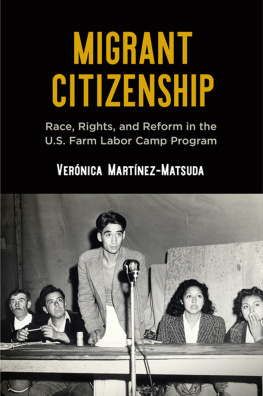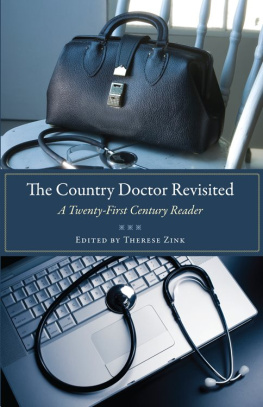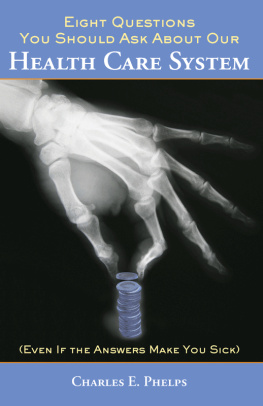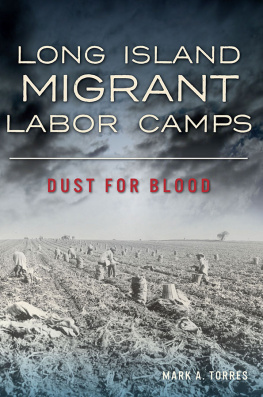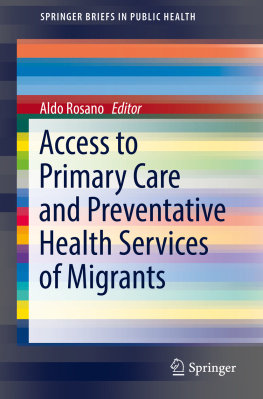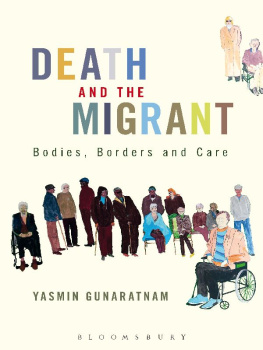PRAISE FOR FRESH FRUIT, BROKEN BODIES
In Fresh Fruit, Broken Bodies , Seth Holmes offers up an important and captivating new ethnography, linking the structural violence inherent in the migrant labor system in the United States to the social processes by which it becomes normalized. Drawing on five years of fieldwork among the Triqui people from Oaxaca, Mexico, Holmes investigates local understandings of suffering and illness, casting into relief stereotypes and prejudices that he ties to the transnational labor that puts cheap food on American tables. Throughout this compelling volume, Holmes considers ways of engaging migrant farmworkers and allies who might help disrupt the exploitation that reaches across national boundaries and can too often be hidden away. This book is a gripping read not only for cultural and medical anthropologists, students in immigration and ethnic studies as well as labor and agriculture, and physicians and public health professionals, but also for anyone interested in the lives and well-being of the people who provide them cheap, fresh fruit.
Paul Farmer, Cofounder of Partners in Health and Chair of the Department of Global Health and Social Medicine, Harvard Medical School
This book takes concepts from the world of scholarship to enrich the understanding of peoples lives, while its vivid detail and empathetic portrait of the reality of peoples lives enrich scholarship. Holmes leaves the reader in no doubt that economic arrangements, social hierarchies, discrimination, and poor living and working conditions have profound effects on the health of marginalized people, and he does so with the touch of a gifted writer. The reader lives the detail and is much moved.
Professor Sir Michael Marmot, Director, UCL Institute of Health Equity
A tour de force ethnography. Holmes gives us the rare combination of medical, anthropological, and humanitarian gazes into the lives of Oaxacan migrant farmworkers in the United States. Their agricultural field work and his anthropological fieldwork intersect to produce a book full of insights into the pathos, inequalities, frustrations, and dreams punctuating the farmworkers daily lives. Through Holmess vivid prose, and the words of the workers themselves, we feel with the workers as they strain their bodies picking fruit and pruning vines; we sense their fear as they cross the U.S.-Mexico border; we understand their frustrations as they are chased and detained by immigration authorities; and we cheer at their perseverance when faced with bureaucrats and medical personnel who treat them as if they were to blame for their own impoverished condition. A must-read for anyone interested in the often invisible lives and suffering of those whose labor provides for our very sustenance.
Leo R. Chavez, Professor of Anthropology, University of California, Irvine
In his first book, anthropologist and doctor Seth M. Holmes gives us an intimate look into the lives of migrant farmworkers. Through his exhaustive research, Holmes reveals the struggles of the millions who work in our fields, every year, to put food on our tables. In deliberations about immigration and farm policy, these are the stories that should be at the center. Holmes helps us put them there.
Anna Lapp, author Diet for a Hot Planet and founder of the Real Food Media Project
In this book, Seth Holmes recounts the experience of Mexican workers who cross the border illegally at their own risk, hoping to be employed on the farms of the West Coast of the United States and, above all, to allow their children a better existence. His engaged anthropology provides a unique understanding of the political economy of migrant labor and of its human cost.
Didier Fassin, Professor of Social Science at the Institute for Advanced Study, Princeton, and author of Humanitarian Reason
Like the reporting of Edward R. Murrow and the labors of Cesar Chavez, Seth Holmess work on these modern-day migrants reminds us of the human beings who produce the greatest bounty of food the world has ever seen. They take jobs that other American workers wont take, for pay that other American workers wont accept and under conditions that other American workers wont tolerate. Yet except for the minority of farmworkers protected by United Farm Workers contracts, these workers too often dont earn enough to adequately feed themselves. Seth Holmess writing fuels the UFWs ongoing organizing among farmworkers and admonishes the American people that our work remains unfinished.
Arturo S. Rodriguez, President, United Farm Workers of America
Fresh Fruit, Broken Bodies
CALIFORNIA SERIES IN PUBLIC ANTHROPOLOGY
The California Series in Public Anthropology emphasizes the anthropologists role as an engaged intellectual. It continues anthropologys commitment to being an ethnographic witness, to describing, in human terms, how life is lived beyond the borders of many readers experiences. But it also adds a commitment, through ethnography, to reframing the terms of public debatetransforming received, accepted understandings of social issues with new insights, new framings.
Series Editor: Robert Borofsky (Hawaii Pacific University)
Contributing Editors: Philippe Bourgois (University of Pennsylvania), Paul Farmer (Partners in Health), Alex Hinton (Rutgers University), Carolyn Nordstrom (University of Notre Dame), and Nancy Scheper-Hughes (UC Berkeley)
University of California Press Editor: Naomi Schneider
Fresh Fruit,
Broken Bodies
MIGRANT FARMWORKERS
IN THE UNITED STATES
SETH M. HOLMES, PHD, MD
With a Foreword by Philippe Bourgois

UNIVERSITY OF CALIFORNIA PRESS
BerkeleyLos AngelesLondon
University of California Press, one of the most distinguished university presses in the United States, enriches lives around the world by advancing scholarship in the humanities, social sciences, and natural sciences. Its activities are supported by the UC Press Foundation and by philanthropic contributions from individuals and institutions. For more information, visit www.ucpress.edu.
University of California Press
Berkeley and Los Angeles, California
University of California Press, Ltd.
London, England
2013 by The Regents of the University of California
Library of Congress Cataloging-in-Publication Data
Holmes, Seth M., 1975
Fresh fruit, broken bodies : migrant farmworkers in the United States / Seth M. Holmes, PhD, MD ; with a foreword by Philippe Bourgois.
pagescm (California series in public anthropology ; 27)
Includes bibliographical references and index.
ISBN 978-0-520-27513-3 (cloth : alk. paper) ISBN 978-0-520-27514-0 (pbk. : alk. paper) ISBN 978-0-520-95479-3 (ebook)
1. Migrant agricultural laborersUnited StatesSocial conditions. I. Title.
HD1525.H6852013
331.5440973dc232012045798
Manufactured in the United States of America
22 21 20 19 18 17 16 15 14 13
10 9 8 7 6 5 4 3 2 1
In keeping with a commitment to support environmentally responsible and sustainable printing practices, UC Press has printed this book on Rolland Enviro100, a 100% post-consumer fiber paper that is FSC certified, deinked, processed chlorine-free, and manufactured with renewable biogas energy. It is acid-free and EcoLogo certified.
To Ed and Carolyn Holmes, for introducing me to a life open to new questions
To the Triqui people in the United States and Mexico, for allowing me into your lives and guiding me toward new answers
... our work is not done.
Dolores Huerta
Contents
Illustrations
FOREWORD | The Symbolic Violence of Primitive Accumulation in the United States |
PHILIPPE BOURGOIS |


